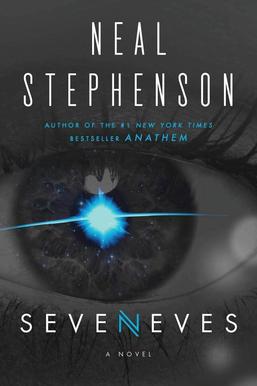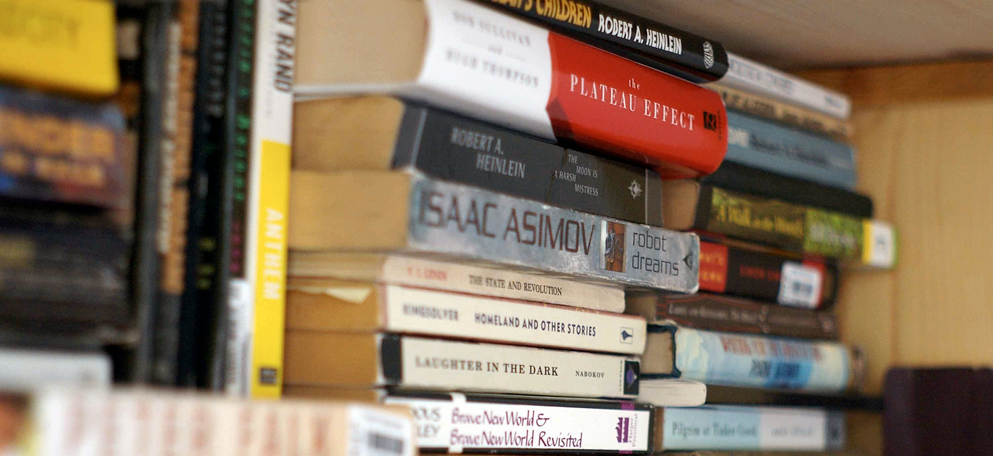
From the #1 New York Times bestselling author of Anathem, Reamde, and Cryptonomicon comes an exciting and thought-provoking science fiction epic—a grand story of annihilation and survival spanning five thousand years.
What would happen if the world were ending?
A catastrophic event renders the earth a ticking time bomb. In a feverish race against the inevitable, nations around the globe band together to devise an ambitious plan to ensure the survival of humanity far beyond our atmosphere, in outer space.
But the complexities and unpredictability of human nature coupled with unforeseen challenges and dangers threaten the intrepid pioneers, until only a handful of survivors remain . . .
Five thousand years later, their progeny—seven distinct races now three billion strong—embark on yet another audacious journey into the unknown . . . to an alien world utterly transformed by cataclysm and time: Earth.
A writer of dazzling genius and imaginative vision, Neal Stephenson combines science, philosophy, technology, psychology, and literature in a magnificent work of speculative fiction that offers a portrait of a future that is both extraordinary and eerily recognizable. As he did in Anathem, Cryptonomicon, the Baroque Cycle, and Reamde, Stephenson explores some of our biggest ideas and perplexing challenges in a breathtaking saga that is daring, engrossing, and altogether brilliant.
Quotes and thoughts while reading:
I've read a lot of Neal Stephenson's books, and they've always seemed to be lacking in something. Either the story takes a crazy turn near the beginning of the book, or the back descriptions doesn't match the actual story in any way, etc. He's a fantastic writer, and creates these immense, rich worlds - they really are great worlds. This book is no exception - and I think is my favorite of his books so far. It felt more cohesive, and like he was trying to tell only one story(up until the final 250 pages or so - then he was trying to tell another story - but we'll leave that for the wrap-up.)
This book touched on a lot of atronomical events - like the Tunguska event - a large explosion that occurred near the Stony Tunguska River, in Yeniseysk Governorate, now Krasnoyarsk Krai, Russian Empire, on the morning of 30 June 1908 (N.S.). The explosion over the sparsely populated Eastern Siberian Taiga flattened 2,000 km2 (770 sq mi) of forest (it caused no known casualties among humans). The cause of the explosion is generally thought to have been a meteor. It is classified as an impact event, even though no impact crater has been found; the meteor is thought to have burst in mid-air at an altitude of 5 to 10 kilometres (3 to 6 miles) rather than hit the surface of the Earth. Stephenson does an immense amount of research for these books, and it's the inclusion of details like that make his worlds so rich. The Tunguska event is just one example of this.
The "Luk" as outlined on page 79 sounds absolutely nuts - just layers and layers of plastic between you and the vacuum of space - no thank you. But I guess when the Earth is two years away from no longer existing you pull out all the stops and just try things.
"Dinah was no nuclear physicist, but she'd had enough radiation facts drilled into her to get the gist. Gamma was high-energy light. It would pass through just about anything. So, bad news, good news. It was hard to shield against the stuff. But most of it passed right through your body without interacting - that is, without doing damage... Betas were free-flying electrons. They were easy to shield against. Good news, bad news. You could stop them with a little bit of water or plastic. But by the same token, if they came into contact with your body they were certain to break something inside you... Alphas were helium nuclei, four thousand times as massive as betas, moving at relativistic speed. They could not pass quietly through matter any more than cannonballs could, but they did a lot of damage to whatever they hit." (p 382) It's precisely this kind of information that Stephenson packs into his books, that just leans over the edge of esoteric that makes his books great fun for me.
The title becomes apparent around page 549 - the Seveneves - and is reinforced throughout the rest of the book. The idea that they would genetically modify their offspring in a way that was most fitting to their personal ideology - and thus create seven distinct races(although the Aidans really make that number higher) was fascinating to read and think about. They go into more detail about the changes to each race as the book goes on - and with the limited number of pages Stephenson left himself for this section it gets a bit dizzying. I kept having to think back about who was who and what their role was on the ship. It was really interesting - but honestly I wish this had been it's own book. He should have ended right after the decision of the Council of the Seven - and then written another book based 5000 years later. Cramming it into one book made it feel like neither story was allowed to end as it should have.
It is great though in the fact that all the things you want to happen - more or less do. Stephenson didn't forget about Dinah's relatives living underground - something I thought we'd just let slip by and assume they didn't make it. He gave us a little bit of their story - and I'd love to see more. And the same goes for Ivy's husband Cal - Neal didn't forget about them and leave the reader hanging. But again - it really felt like the period leading up the Council of Seven could have been the first book. Then we'd have a second where we get to meet the Diggers and the Pingers - maybe the publisher was afraid to split it into two of three books. Stephenson has created this really groovy world - and I hope he writes future books in it.
All in all - this was a fun read. It was the opposite of his normal setup - where he changes the story about 200 pages in. This time he changed the story with about 200 pages left. I haven't really liked most of his endings - but these ones were alright(because really I feel like there were two endings). They are probably better endings than I've read of his before. If you have the time and the want I would definitely suggest picking it up and giving it a read. It's immersive and wonderful.
© JKloor 2016 Books
